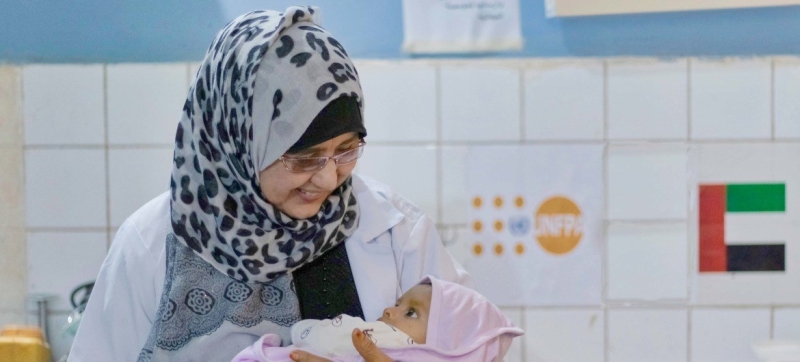
Midwife with a newborn in Yemen. Low pay for very important work: the UN calls for investment in the development of obstetrics Women
Midwives not only provide important health care services to families, but are also among the first to help communities during emergencies. The climate crisis poses particular threats to women and girls, with research showing that higher temperatures can lead to pregnancy complications and cause premature births and miscarriages. This year’s International Day of the Midwife, celebrated on May 5, focuses on the role of midwives in the context of climate change.
When natural disasters or conflicts occur, midwives are often the first responders to crisis situations in which women find themselves.
At the same time, UN Foundation experts in the field UNFPA believes that midwives can help reduce greenhouse gas emissions because they support breastfeeding rather than the use of formula milk, which must be packaged and delivered to consumers.
Recognition and respect
Women and girls often face the greatest challenges in countries most vulnerable to the impacts of climate change, says UNFPA. Climate-related disasters can disrupt access to family planning, safe childbirth and other support. Midwives play a key role in ensuring that health services can quickly reach women in need.
“In a world where our latest data shows that every two minutes When a woman or girl dies during pregnancy, childbirth or after, the midwife will always be the protagonist of the story,” said UNFPA Executive Director Natalia Kanem.
Read also:
UN: 800 women die every day in childbirth
However, UNFPA stresses that the world is short of nearly one million midwives, and the lack of international commitment to invest in their training, development and support puts the health and well-being of women and girls at risk.
Midwives deserve recognition and respect, but instead they face harsh working conditions, low pay and lack of career opportunities. All these factors lead to a global talent shortage. Members of this profession – predominantly women – also often face gender discrimination and sexual harassment at work.
Investing in midwifery
The global community must urgently invest in creating the conditions that enable midwives to do their important work, including by creating quality education opportunities, providing essential resources, and expanding legal support.
In more than 125 countries, UNFPA promotes midwifery by investing in quality education, regulations and workforce policies, and creating midwife associations. To date, the Foundation has supported the education and training of nearly half a million midwives worldwide, trained more than 100,000 midwifery educators, and invested in more than 1,600 midwifery schools.
In collaboration with the International Confederation of Midwives, the United Nations Children’s Fund (UNICEF), the World Health Organization (WHO) and a range of global partners and donors, UNFPA is developing a Global Roadmap for Midwifery, which will be presented at the World Health Summit in October 2024.
